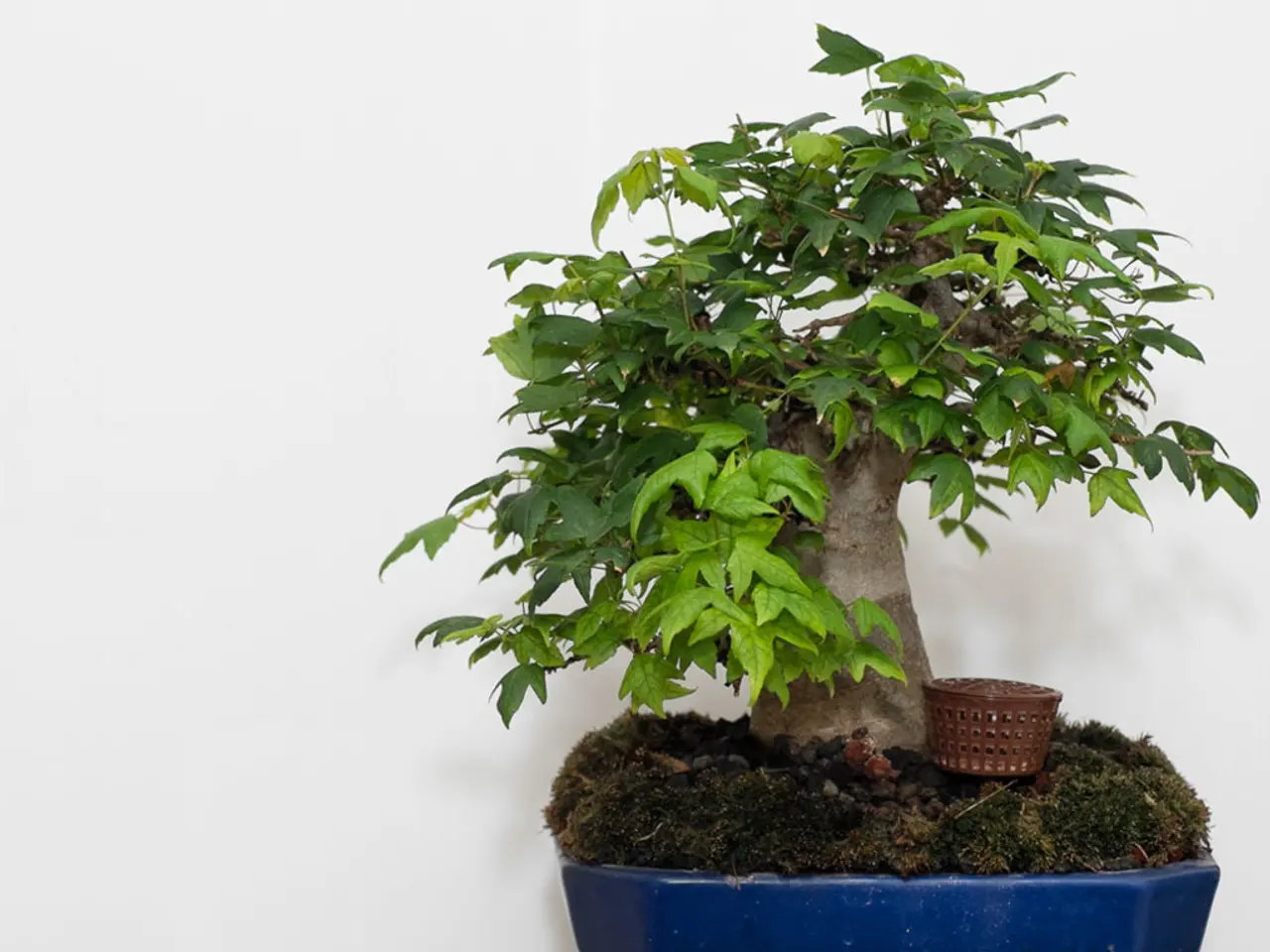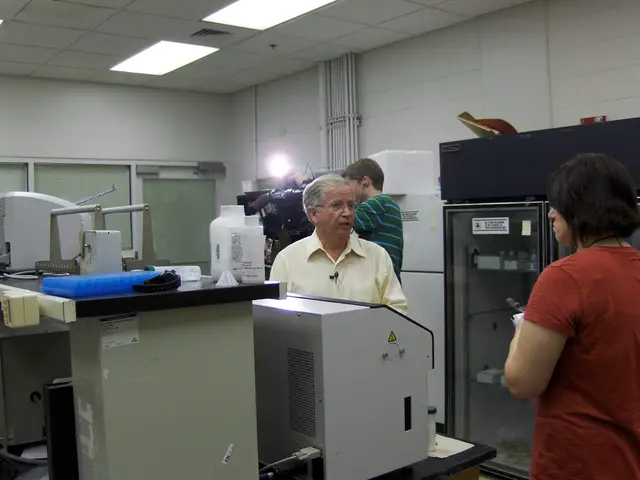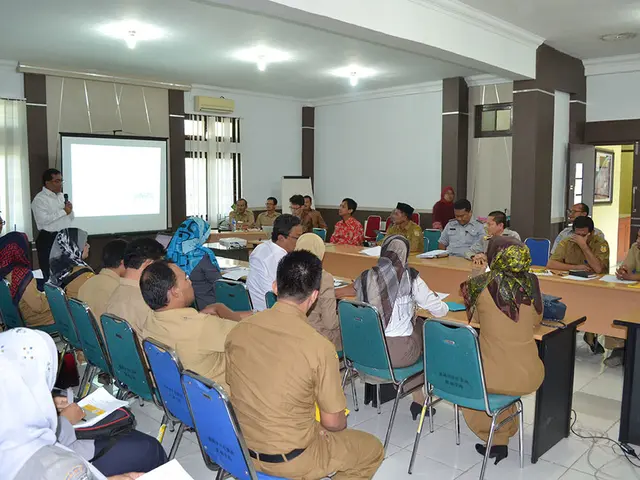Identifying and Overcoming Nutrient Shortages in Bonsai Trees: Diagnosis and Treatment
In the world of bonsai cultivation, ensuring a balanced nutrient intake is crucial for maintaining the health and vitality of these miniature trees. Regular repotting is vital to prevent nutrient depletion, and organic alternatives such as compost tea, worm castings, and alfalfa meal offer eco-friendly alternatives to chemical-based fertilizers.
Common signs of nutrient deficiencies in bonsai trees include yellowing leaves, leaf drop, brown leaf tips, stunted growth, and leaf discoloration. Each symptom can correspond to specific nutrient imbalances or cultural issues.
For instance, yellowing leaves often signal a nitrogen deficiency but can also result from poor watering practices. Nitrogen is vital for healthy, green foliage growth. To address this, apply a balanced bonsai fertilizer containing nitrogen, and ensure consistent watering—avoid waterlogged or too-dry soil.
Brown tips on leaves may indicate inconsistent watering or excessive direct sunlight, causing leaf scorch. While this may not always be a direct nutrient deficiency symptom, it stresses the plant, affecting nutrient uptake. To rectify this, move the bonsai to an area with indirect light and keep watering consistent with well-draining soil.
Stunted growth and yellowing leaves can be caused by deficiencies in potassium, magnesium, and manganese. These nutrients are crucial for various metabolic and physiological processes in the plant. To address these deficiencies, use a complete fertilizer formulated for bonsai or indoor trees that includes micronutrients, following manufacturer recommendations to avoid nutrient burn.
A deficiency in magnesium can lead to weak branches, yellowing leaves with green veins. To address this, use Epsom salt (magnesium sulfate) applied to the soil or diluted in water.
A deficiency in iron can result in interveinal chlorosis, characterized by yellowing leaves with green veins, and a general decline in foliage health. Phosphorus and potassium are essential macronutrients that promote healthy root development, flower and fruit production, and overall plant energy in bonsai trees. A deficiency in potassium can result in weak stems and yellowing leaves, while a deficiency in phosphorus can lead to stunted growth and poor root systems.
To restore balance and health to a bonsai tree, enthusiasts must replenish essential nutrients, monitor and adjust watering routines, provide peak care, and observe and learn. Specialized bonsai fertilizers are often recommended to guarantee peak growth and vigor.
By closely monitoring leaf color and health, adjusting watering routines, and using appropriate bonsai fertilizers with essential macro- and micronutrients, you can effectively correct deficiencies and restore your bonsai tree's vigor.
Incorporating science, it's crucial to understand the relationship between nutrient intake and a bonsai tree's health and vitality, as imbalances can lead to symptomslike yellowing leaves, stunted growth, or leaf drop. To ensure a balanced diet, use specialized bonsai fertilizers rich in macronutrients like nitrogen, phosphorus, and potassium, as well as micronutrients like manganese, magnesium, and iron.
Adopting a health-and-wellness approach to bonsai care, regular gardening like maintaining well-draining soil and correct watering practices plays a significant role in preventing nutrient deficiencies and promoting fitness-and-exercise, resulting in overall lifestyle improvement for your bonsai tree.
Expanding the scope of home-and-garden projects, learning gardening techniques such as identifying common nutrient deficiency symptoms and applying organic alternative fertilizers like compost tea or alfalfa meal can create a sustainable environment for your bonsai tree, supporting both its health and the health of the planet.





